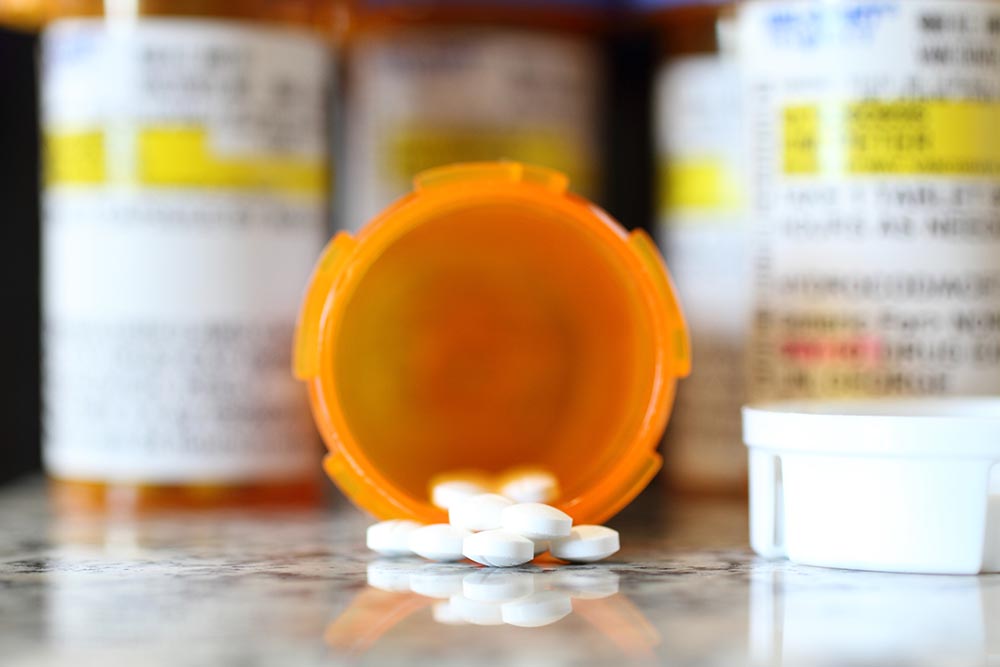Large numbers of people in our country are suffering from an opioid epidemic and the St. Louis and Kansas City areas are no exception. According to the Journal of the Kansas City Medical Society, in the four years between 2013 and 2016, the number of opioid overdose deaths rose by over 68% across the nation, peaking in 2017 after reaching a historic 72,000 deaths that year. Apparently, the powerful synthetic drug, Fentanyl, is principally to blame for the increased number of drug related deaths for those addicted to opioids in the United States.
Rise of Opioid Abuse
The broad use of prescription drugs is associated with abuse leading to addiction and, in turn, the addicted population seeking out increasingly stronger opioids. It has been reported that between 8% and 12% of patients who are prescribed opioids for a legitimate medical purpose develop an opioid use disorder and a whopping 80% of heroin users report first having misused prescription painkillers before using heroin for the first time.
The rise of opioid abuse has many reasons, but squarely among them, is the inability for treatment centers to meet the demand of the addicted population. With close to two million people in the country having opioid use disorders, specialty treatment clinics don’t have the capacity to treat the volume of patients in need. Another issue is that treatment centers vary in effectiveness from site to site. Studies have shown that psychosocial intervention is drastically more effective when used in combination with a prescription for Buprenorphine or Methadone and this type of treatment is not available everywhere.
A Growing Issue in Kansas and Missouri
The opioid epidemic that started on the coastal cities of the United States has slowly but surely made its way towards the center of the United States and is now a growing issue in Kansas and Missouri. In Missouri, the majority of the state’s drug overdose deaths last year were concentrated in St. Louis, but Kansas City is now bracing itself for a surge in abuse cases as the problem continues to move west. Kansas itself has reported that eight in ten drug overdoses have involved prescription medications. With Missouri being the only state in the country without a prescription drug monitoring program, it is likely far easier for people to get prescriptions for addictive pain killers here than in other states and therefore there is increased cause for concern.
The fear is that Kansas City is unprepared to handle the spike in opioid addiction as local treatment centers already have a two week wait time and many addicts will not return for treatment after being turned away. Doctors have argued that in the fight against opioid abuse, there is less need for drug regulation and more need for treating physicians to have information about patients available to them at the time they are writing prescriptions. They believe that this will help combat against the practice of pill seekers collecting opioid prescriptions from multiple physicians in an effort to feed an addiction.
Local Awareness and Prevention
However, in Missouri and Kansas, awareness of the root of the opioid epidemic is already leading local physicians to scale back on the number of prescription painkillers they are providing to their patients. In 2017 the number of opioid pain reliever prescriptions decreased by 20% from the rate at which they were prescribed in 2011. Attempting to prevent opioid addiction at the forefront is being done alongside efforts to prevent overdose deaths for those already suffering. In 2017, Kansas and Missouri government officials signed orders allowing pharmacies to sell Naloxone, a drug made to revive those suffering from opioid overdoses, to those without prescriptions. Griggs Injury Law cares about shining a light on this important issue that affects so many in our community. Our office is available to answer questions, contact us at 816-474-0202.


